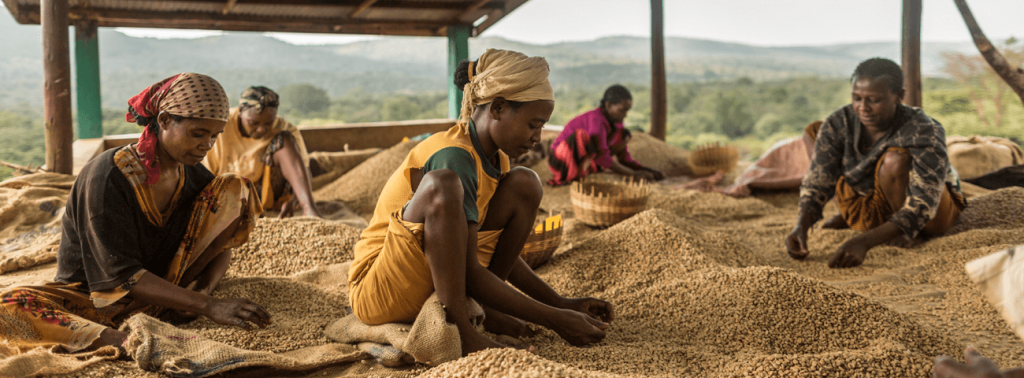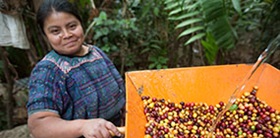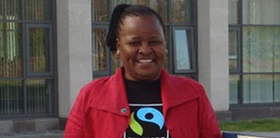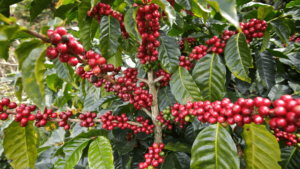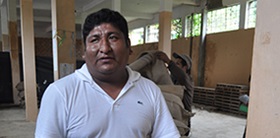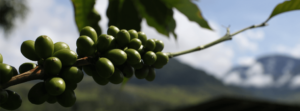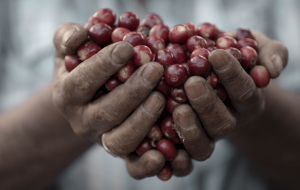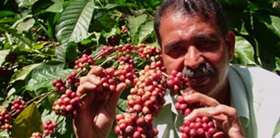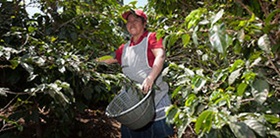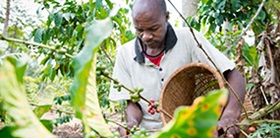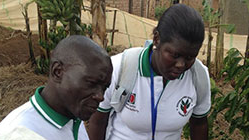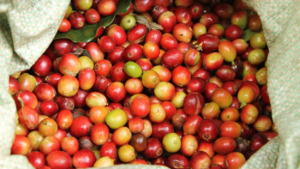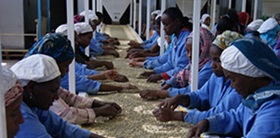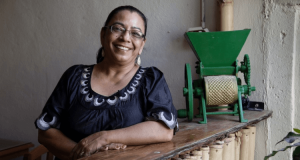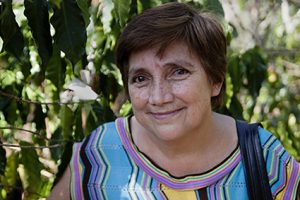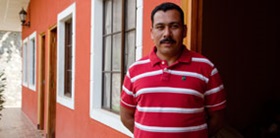Coffee is one of the world’s most popular beverages and 80% of it is produced by 25 million smallholders.
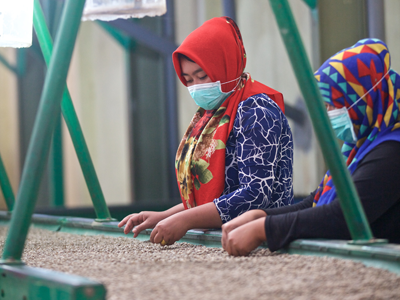 Around 125 million people worldwide depend on coffee for their livelihoods. It is one of the most valuable and widely traded tropical agricultural products and is mainly produced by smallholder farmers. Many of them however are unable to earn a reliable living from the coffee they produce.
Around 125 million people worldwide depend on coffee for their livelihoods. It is one of the most valuable and widely traded tropical agricultural products and is mainly produced by smallholder farmers. Many of them however are unable to earn a reliable living from the coffee they produce.
Coffee is well known for being a boom and bust commodity. Global coffee production varies from year to year according to weather conditions, disease and other factors, resulting in a coffee market that is inherently unstable and characterised by wide fluctuations in price. This price volatility has significant consequences for those who depend on coffee for their livelihood, making it difficult for growers to predict their income for the coming season and budget for their household and farming needs.
The coffee supply chain is complex as beans pass through the hands of growers, traders, processors, exporters, roasters, retailers until finally reaching the consumer. Most farmers have little idea of where their coffee goes or what price it ends up selling for. The more lucrative export of green coffee – beans that have been processed ready for export and roasting – is only an option for farmers who are able to form co-operatives, purchase processing equipment and organise export, or hire a contractor to carry out these services.
Why is Fairtrade important?
With Fairtrade, certified coffee producer organisations are guaranteed to receive at least the Fairtrade Minimum Price for their coffee, which aims to cover their costs of production and act as a safety net when market prices fall below a sustainable level. Through their producer organisations, farmers also receive the additional Fairtrade Premium to invest in business or community improvements. At Fairtrade, we care about improving quality, and Fairtrade coffee farmers must use at least 25 per cent of the Fairtrade Premium to enhance productivity and quality, for example, by investing in processing facilities. In 2018, certified coffee farmers earned an estimated €76.6 million in Fairtrade Premiums that were invested in farmer services and community projects.
Meet Ketra, a Fairtrade coffee farmer
Watch Ketra Kyosiimire, a farmer and accountant from Uganda, tell us her story about how Fairtrade has empowered her and her community.
Where to buy Fairtrade coffee
When you choose Fairtrade coffee, not only can farmers build a better quality of life for their families and communities, they can invest in growing better-quality beans too.
Find out where to buy Fairtrade coffee.
Our coffee farmers
ACODIHUE, Guatemala
ACODIHUE is located in the Cuchumatanes Mountains of Huehuetenango, Guatemala.
KDCU Ltd, Tanzania
Anna is employed at the KDCU head office where she is responsible for all issues relating to employment.
ASPROTIMANA
Through coffee and the development of the cooperative, ASPROTIMANA has offered the families hope for a better future.
CECOVASA, Peru
CECOVASA is a secondary-level organisation made up of 10 primary co-operatives which represent 5,049 Quechua and Aymara peasant families.
COOPEAGRI, Costa Rica
COOPEAGRI is a large co-operative located in the Perez Zeledon region in the south of Costa Rica. Coffee is its main cash crop.
CUDLIEMNONG, Vietnam
Cud Lie Mnong Fairtrade Agriculture Cooperative (CUDLIEMNONG) is located in Cu Mgar, in the central highlands of Vietnam.
Fair Trade Alliance Kerala, India
FTAK is a small farmers’ organisation located in South India that grows coffee, cashew nuts and tropical spices.
FEDECOCAGUA, Guatemala
FEDECOCAGUA became Fairtrade certified in 2000, though some member cooperatives have been selling to the Fairtrade market for more than 10 years.
KDCU, Tanzania
Karagwe District Cooperative Union Ltd (KDCU) is an organisation of small scale coffee growers located in the Karagwe District of northwest Tanzania.
Kibinge Coffee Farmers’ Co-operative Society, Uganda
The coffee farmers of Kibinge in central Uganda are helping many of us get our day off to a good start.
KPD, Tanzania
Kaderes Peasants Development Plc (KPD) is a coffee co-operative located in Karagwe, northwest Tanzania.
Oromia Coffee Farmers Co-operative Union, Ethiopia
Oromia Coffee Farmers Co-operative Union (OCFCU), the largest Fairtrade coffee producer in Ethiopia, was founded in 1999.
SOPPEXCCA, Nicaragua
SOPPEXCCA was formed in 1997 by a group of 62 farmers to improve the lives of its members and their communities to build a sustainable organisation.
Teresa Riviera Palacios, Nicaragua
Teresa Riviera Palacios has been the president of the co-operative Dantanli Los Robles since 2012, and has been farming coffee for many years.
UCA San Juan, Nicaragua
UCA was founded in 1992 by members of 11 village co-operatives.
UPROAGRO, Bolivia
Unión de Productores Agropecuarios (UPROAGRO) is an association of small-scale coffee growers located in northern Bolivia.
